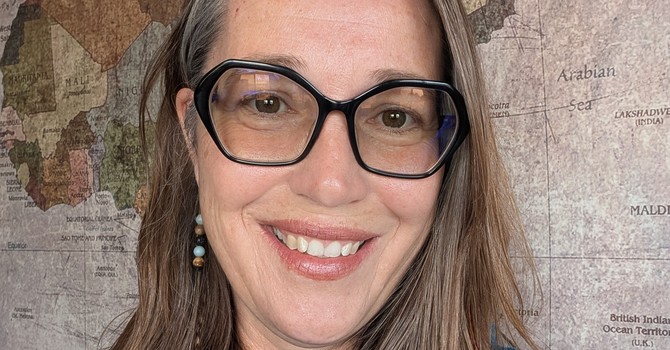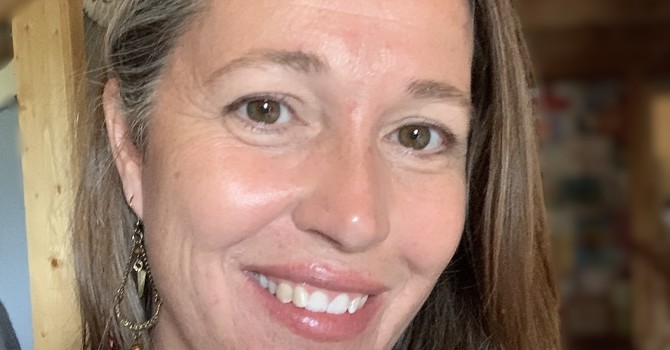We provide a range of ways for you to address trauma, anxiety, depression, grief and relationship challenges.
This page will give you an overview of our services.
EMDR - "Eye Movement Desensitization and Reprocessing"
EMDR is an extensively researched, effective psychotherapy method proven to help people recover from trauma and other distressing life experiences, including PTSD, anxiety, depression, and panic disorders. EMDR therapy helps children and adults of all ages.
Have You Heard About The Incredible Healing Power Of EMDR?
The American Psychiatric Association, the American Psychological Association, the International Society for Traumatic Stress Studies, National Alliance on Mental Illness, the Substance Abuse and Mental Health Services Administration, the U.K. National Institute for Health and Care Excellence, the S. Dept. of Veterans Affairs/Dept. of Defense, The Cochrane Database of Systematic Reviews, and the World Health Organization among many other national and international organizations recognize EMDR therapy as an effective treatment.
Video Courtesy of EMDR International Association
https://www.emdria.org/
Therapists use EMDR therapy to address a wide range of challenges including:
- Anxiety, panic attacks, and phobias
- Chronic Illness and medical issues
- Depression and bipolar disorders
- Dissociative disorders
- Eating disorders
- Grief and loss
- Pain
- Performance anxiety
- Personality disorders
- PTSD and other trauma and stress-related issues
- Sexual assault
- Sleep disturbance
- Substance abuse and addiction
- Violence and abuse (EMDRIA.ORG)
Perinatal Mood and Anxiety Disorders (PMAD)
Women [and men] of every culture, age, income level, and race can develop perinatal mood and anxiety disorders. Symptoms can appear any time during pregnancy and the first 12 months after childbirth. There are effective and well-researched treatment options to help you recover. Although the term “postpartum depression” is most often used, there are actually several forms of illness that new caregivers may experience, including:
- Adjustment to parenthood
- Anxiety During Pregnancy & Postpartum
- Bipolar Mood Disorders
- Birth trauma
- Depression During Pregnancy & Postpartum
- Fertility challenges, miscarriages, stillbirth & loss
- NICU & medical issues
- Parenthood/caregiver support
- Postpartum Post-Traumatic Stress Disorder
- Postpartum Psychosis
- Pregnancy or Postpartum (OCD)
You have the right to receive a “Good Faith Estimate” explaining how much your medical care will cost
Under the law, health care providers need to give patients who don’t have insurance or who are not using insurance an estimate of the bill for medical items and services.
You have the right to receive a Good Faith Estimate for the total expected cost of any non-emergency items or services. This includes related costs like medical tests, prescription drugs, equipment, and hospital fees.
Make sure your health care provider gives you a Good Faith Estimate in writing at least 1 business day before your medical service or item. You can also ask your health care provider, and any other provider you choose, for a Good Faith Estimate before you schedule an item or service.
If you receive a bill that is at least $400 more than your Good Faith Estimate, you can dispute the bill.
Make sure to save a copy or picture of your Good Faith Estimate.
For questions or more information about your right to a Good Faith Estimate, visit www.cms.gov/nosurprises or call the Colorado Division of Insurance at 303-894-7490 or 1-800-930-3745.
Grief, Loss and Bereavement
Grief therapy is designed to help one process and cope with loss.
Examples of loss include a friend, family member, pet, or other life circumstance. Grief affects everyone differently. It also affects people at different times.
There are no “right or wrong” ways to grieve. Many common experiences with grief include sadness, anger, confusion, relief, regret, guilt, and even depression. It is also common to not have any of these experiences. We believe it is an honor to walk with you through your loss during your unique grieving journey – all in a safe space.
Family and Child Therapy
We work in partnership with parents to help parents increase their healing capacity and use various tools to support their own child(ren).
Attachment and Relationships
We use an attachment centered perspective.
The “father” of attachment theory, John Bowlby, said this about attachment: “Intimate attachments to other human beings are the hub around which a person’s life revolves, not only as an infant or a toddler or a schoolchild but throughout adolescence and years of maturity as well, and on into old age.
From these intimate attachments a person draws strength and enjoyment of life and, through what he contributes, gives strength and enjoyment to others. These are matters about which current science and traditional wisdom are at one.” (Bowlby, J. (1980) Attachment and Loss: Volume 1. Attachment. Basic Books: New York.)
Circle of Security Parenting
We have been COSP facilitators for over a decade and believe COS Parenting has the potential to transform your relationship with your child and approach parenting for the better. Following are some founding principles that underlie the Circle of Security models of intervention:
- Attachment problems in infancy and early childhood increase the probability of psychopathology later on in life.
- Secure attachment relationships with caregivers are a protective factor for infants and preschoolers, setting the foundation for social competence and promoting the effective functioning of the emotion regulation and stress response systems.
- The quality of the attachment relationship is amenable to change.
- Learning, including therapeutic change, occurs from within a secure base relationship.
- Lasting change in the attachment relationship comes from caregivers’ developing specific relationship capacities rather than learning techniques to manage behavior.
- All caregivers want what is best for their children.
What You Need To Know About Theraplay
Theraplay is a dyadic child and family therapy that has been recognized by the Association of Play Therapy as one of seven seminal psychotherapies for children.
Developed over 50 years ago, and practiced around the world, Theraplay was developed for any professional working to support healthy child/caregiver attachment. Strong attachment between the child and the important adults in their life has long been believed to be the basis of lifelong good mental health as well as the mainstay of resilience in the face of adversity.
Modern brain research and the field of neuroscience have shown that attachment is the way in which children come to understand, trust and thrive in their world.



